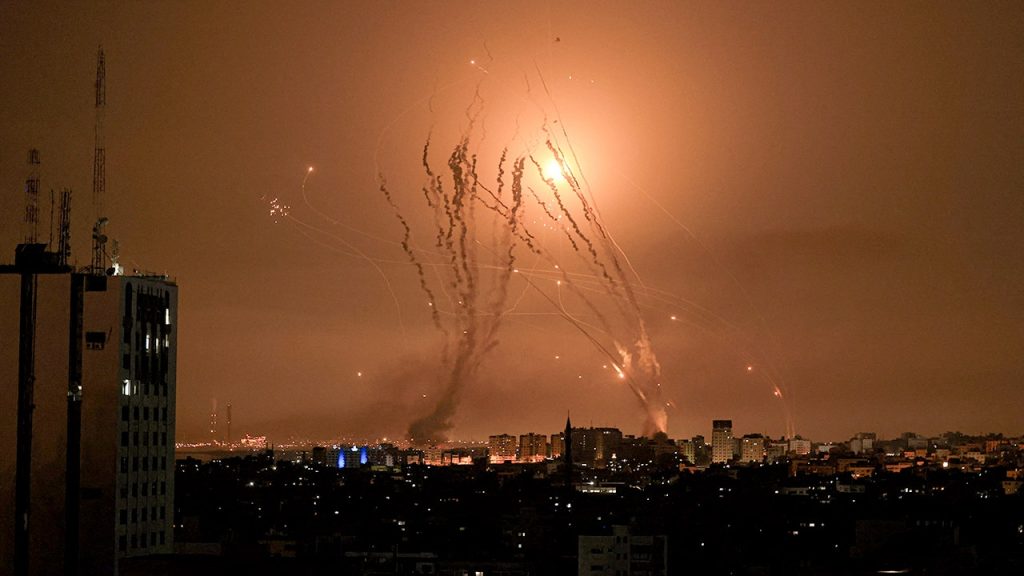In the early hours of Sunday, Israel successfully defended itself against an attack from Iran consisting of drones and missiles thanks to its powerful air defense systems, with assistance from the U.S. military and other allies. A senior U.S. official reported that dozens of Iranian drones heading towards Israel were shot down, with ongoing military engagement in the region. Israel’s advanced air defense systems intercepted 99% of the missiles fired by Iran, and a senior Israeli official stated that the response would be unprecedented.
U.S. military officials have stated that they will continue to provide defensive support and protect U.S. forces operating in the region by shooting down any missiles or drones that may pose a threat to the U.S. or its allies. They have also confirmed that the U.S. closely coordinated with Jordan and Egypt during the attack, with Jordan playing a key role in intercepting projectiles fired at Israel. The use of airspace will be monitored closely, with officials emphasizing that they will shoot down anything in the air that could potentially be a threat.
Iran claimed on Sunday that its attack on Israel had ended but warned that it would respond decisively to any nation that allowed Israel to use its airspace to attack Iran. This statement raises concerns about the potential for further escalations between Iran and its enemies in the region. The U.S. military’s commitment to defending its allies, as well as the coordination with other nations, highlights the importance of maintaining security and stability in the Middle East amidst rising tensions.
The successful interception of Iranian drones and missiles by Israel’s air defense systems, with support from the U.S. military and other allies, showcases the effectiveness of collaboration and advanced technology in countering threats from hostile forces in the region. The ability to shoot down incoming projectiles demonstrates the importance of preparedness and readiness in the face of potential attacks, with a focus on protecting civilian populations and military forces from harm. The ongoing engagement by the U.S. military in the region signals a commitment to safeguarding its allies and maintaining peace and security in the Middle East.
The Iranian attack on Israel and the subsequent interception of drones and missiles highlights the complex dynamics at play in the region, with competing interests and geopolitical tensions fueling conflicts between nations. The threat of further escalations and retaliations remains a concern, as Iran’s warning of decisive responses to any nation aiding Israel underscores the potential for broader confrontations. The need for continued vigilance and coordination among allies in the face of evolving threats emphasizes the importance of diplomacy and deterrence in preventing further hostilities and promoting stability in a volatile region.


